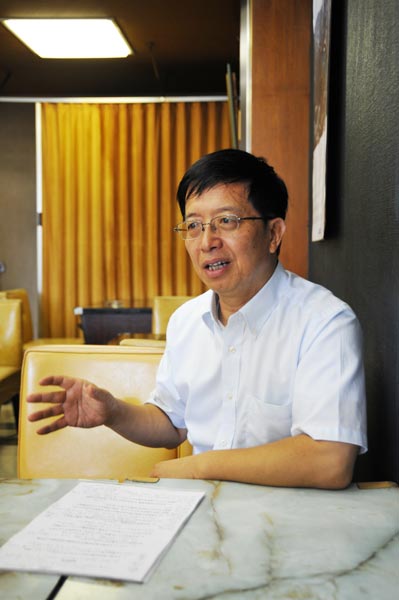Public, officials united in China's new reform era
- By Zhu Jianrong
 0 Comment(s)
0 Comment(s) Print
Print E-mail China.org.cn, August 31, 2012
E-mail China.org.cn, August 31, 2012
Sometimes, crisis can equal opportunity. "China became a major player in economic terms in Asia after the 1998 Asian financial crisis and became a major global economic power following the 2008 global financial crisis," commented Guan Zhixiong, a researcher with the Nomura Securities Institute of Capital Market Research, discussing China's increasing international status. So, how has China managed to maintain its impressive growth rate? To discuss this issue, we must examine China's political system in conjunction with economic matters rather than merely focus on economics alone.
 |
|
Zhu Jianrong is a professor of the Toyo Gakuen University and a member of the Society of Chinese Professors in Japan. |
China's achievements are even more remarkable in comparison to other global powers, both rising and established. India claims to be the world's largest democratic country, but it has not yet been able to abolish the caste system which determines a person's social level and status from cradle to grave. Such a system can hardly been held up as one which promotes equality. And in the United States, the slogan of the "Occupy Wall Street" Movement which rose to prominence in the wake of the latest global financial crisis, was to condemn social inequality, stating: "The richest one percent owns 99 percent of the wealth."
China has gradually become a global economic power over the past 30 years and has lifted more than 400 million people out of poverty, which has in turn prompted great progress in terms of both social liberty and political democracy. Such achievements are unprecedented among other political systems.
As a political scholar, I have been watching the political reasons behind China's rise. I believe that, since the Deng Xiaoping era, China has basically solved the issue of maintaining policy coherence and continuity, which has long been hampering Western political systems. It did so by forcibly guaranteeing the implementation of the three-step development strategy.
In Western countries, a 2-3 or 4-5 year policy will be subject to constant changes due to frequent changes of government or political deals among different parties in pursuit of their own agendas. In such a scenario, it is easy to see what would happen to a longer-term policy strategy.






Go to Forum >>0 Comment(s)